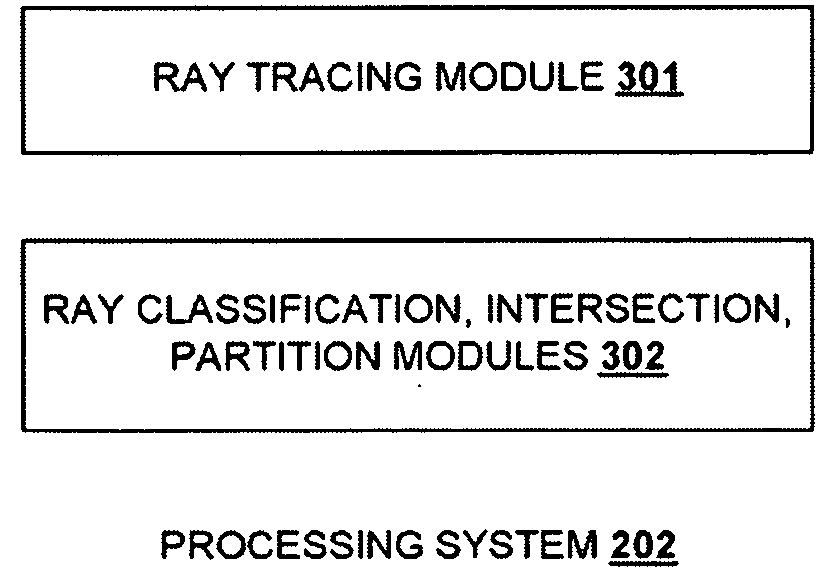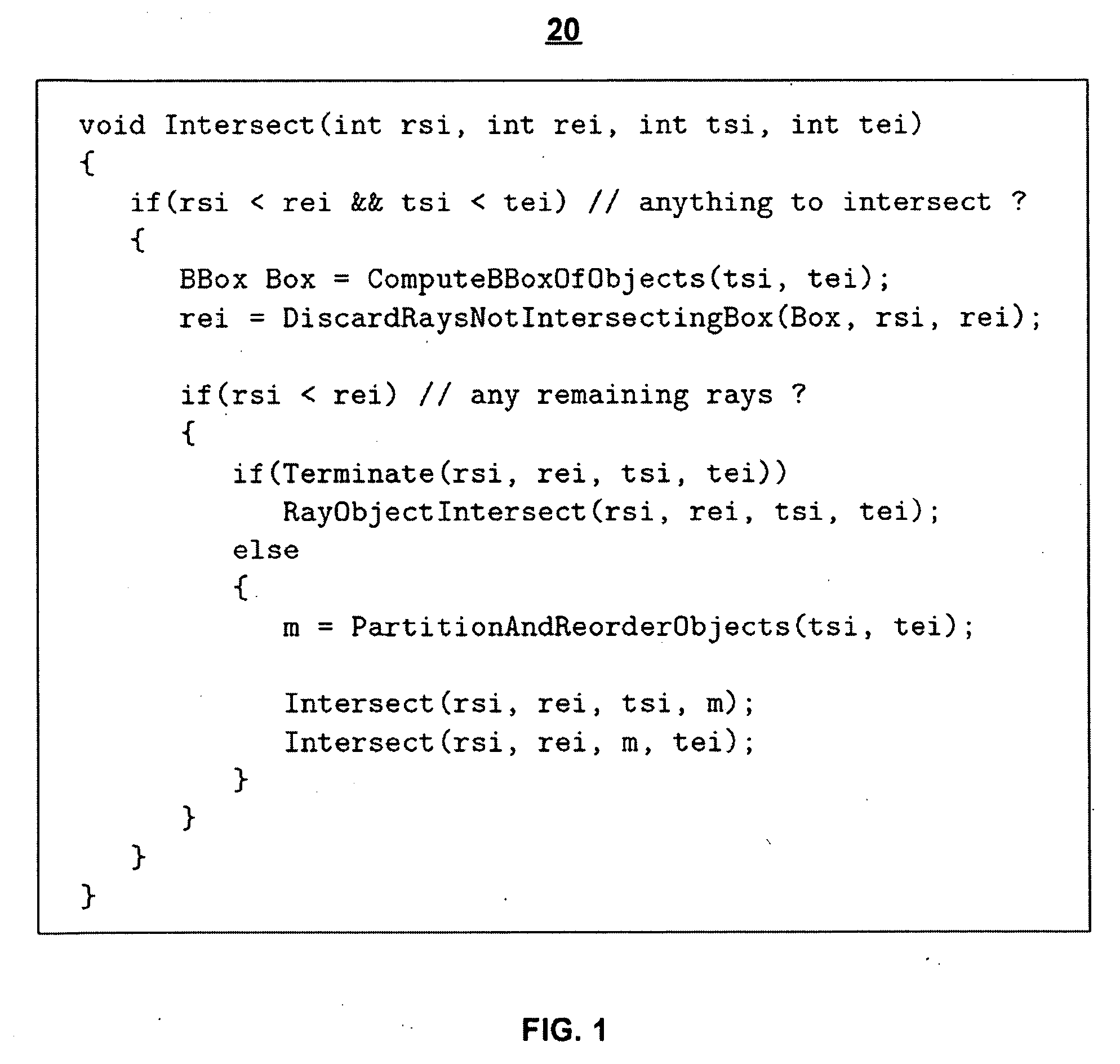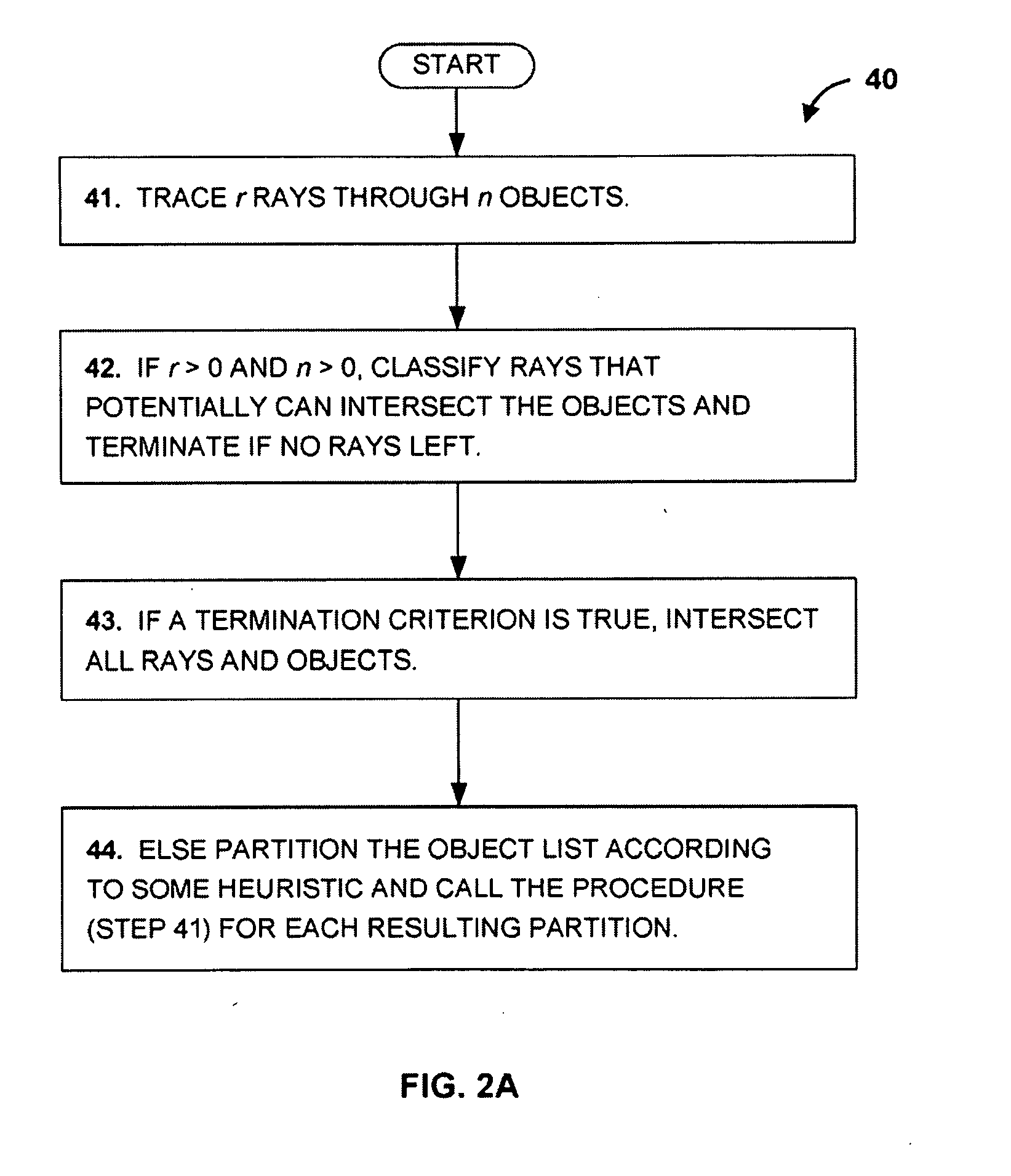Efficient ray tracing without acceleration data structure
- Summary
- Abstract
- Description
- Claims
- Application Information
AI Technical Summary
Benefits of technology
Problems solved by technology
Method used
Image
Examples
Embodiment Construction
1. Overview
[0068]A known principle of accelerated ray tracing is to construct a spatial hierarchy that allows one to cull parts of space that are not intersected by a ray, thus effectively reducing the overall amount of object intersections per ray. Typically this hierarchy is stored explicitly and its elements are enumerated along ray direction in order to efficiently trace a ray. However, the Applicant has discovered that foregoing this kind of ordered traversal enables ray tracing in the style of a depth-buffer technique: the hierarchy does not need to be stored explicitly and even massive or procedurally generated geometry can be streamed. As a side benefit, the method approximately sorts computed intersections by spatial proximity, which is consistent with other recent findings by the inventors regarding the simultaneous simulation of Markov chains, i.e., variance reduction and shading coherency is implicit.
2. Introduction
[0069]Ray tracing is a versatile tool for enabling bidir...
PUM
 Login to View More
Login to View More Abstract
Description
Claims
Application Information
 Login to View More
Login to View More - R&D
- Intellectual Property
- Life Sciences
- Materials
- Tech Scout
- Unparalleled Data Quality
- Higher Quality Content
- 60% Fewer Hallucinations
Browse by: Latest US Patents, China's latest patents, Technical Efficacy Thesaurus, Application Domain, Technology Topic, Popular Technical Reports.
© 2025 PatSnap. All rights reserved.Legal|Privacy policy|Modern Slavery Act Transparency Statement|Sitemap|About US| Contact US: help@patsnap.com



